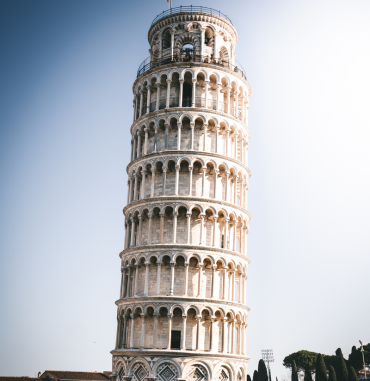IELTS Application Form
3.9KB
3.9KB


Trust us to guide you every step of the way with professionalism and care.
Europe’s most affordable study location is Italy. Smaller towns tend to be far more affordable, even though big cities like Rome or Milan might have expensive living expenses. Moreover, larger educational institutions typically assist with housing; if you’re lucky, you might be able to acquire a room in an affordable student residence.
Italy has reasonably priced public universities when compared to other European nations. In Italy, annual tuition at public colleges approximately costs around 1,000 EUR. Additionally, prestigious universities with high rankings may charge extra.
The University of Rome Tor Vergata is an exception, with tuition dependent on your family’s financial status: students pay between a minimum of approximately 150 EUR and a maximum of approximately 5,000 EUR annually, depending on their family income.
The Italian Government offers scholarships each year to foreign nationals or residents of Italy who wish to pursue formal education in Italy and participate in bilateral and multilateral study and research initiatives. In addition, Scholarships granted by the Italian Government to Foreigners and Nationals living abroad and the new portal Study in Italy have all the updated information.
The new government portal includes a list of countries that have received scholarships, a call for applications, and an online application platform. Italy’s degree programs may have different tuition costs.
In Italy, tuition payments are demanded of both native and international students. There are several scholarship options available to help with the remaining expenses. If you’re keen to study in Italy and are searching for scholarships, our team of experts can assist you every step of the way. Using our extensive database of scholarship opportunities and online tools, candidates may choose the scholarship that best suits their needs.
With the Italy post-study work visa, overseas students, not members of the European Union, can prolong their study visas and use them to hunt for jobs in Italy or other Shenzhen nations. Fortunately, EU students may work in Italy without a work authorization. Moreover, international students must renew their residency status to continue working in Italy.
If you intend to remain in Italy after completing your higher education, you must comprehend every aspect of the post-study work visa. Employment opportunities are abundant for individuals who have finished their higher education in Italy after graduating. Additionally, Italy is a developed nation with a high per capita national GDP, possessing advanced infrastructure and industries.
However, if you’re overwhelmed by your academic journey’s complexities, Destiny Globals can be your guiding light. In addition, please schedule a consultation with our experienced advisors to discuss your educational goals, from selecting the perfect program to crafting a winning application. Whether you seek undergraduate studies, postgraduate pursuits, or exam preparation guidance, Destiny Globals offers personalized support to help you unlock your academic potential. Lastly, don’t hesitate to take the first step towards success—book your consultation today!
Set up a meeting with us now, and we’ll work with you to make your study abroad ambitions a reality.
IELTS is not universally required to study in Italy, but it depends on the program and university. Many English-taught programs may require IELTS or an equivalent English language proficiency test, especially for non-native English speakers.
The cost of studying in Italy can vary. Public universities typically charge between €900 and €4,000 per year for undergraduate courses. Private universities can cost much more. Living expenses range from €700 to €1,000 per month, depending on the city.
Italian universities generally accept a study gap of up to 2-3 years for undergraduate programs. For postgraduate programs, longer gaps can be justified with relevant work experience or additional studies. If you need assistance with your application or justifying your study gap, consider reaching out to Destiny Globals, a specialized Italy Study Visa Consultant.
After completing your studies in Italy, you can convert your student visa into a work visa by finding employment. To apply for permanent residency, you must legally reside and work in Italy for at least 5 years.
Studying in Italy can be very beneficial, particularly for those interested in fields like art, history, fashion, and culinary arts, due to the country’s rich cultural heritage and strong academic institutions. Additionally, tuition fees are relatively low compared to other Western European countries.
To study in Italy, you typically need a valid passport, a student visa, proof of financial means, health insurance, and acceptance into a study program. Academic requirements include a high school diploma for undergraduate programs and a relevant bachelor’s degree for postgraduate programs. Depending on the program, you might also need to provide proof of Italian or English proficiency.
27 Old Gloucester Street
London, United Kingdom
Mon – Fri: 9:00 am to 5:00 pm
Sat – Sun: Closed
© All Rights Reserved by Destiny Global Solutions